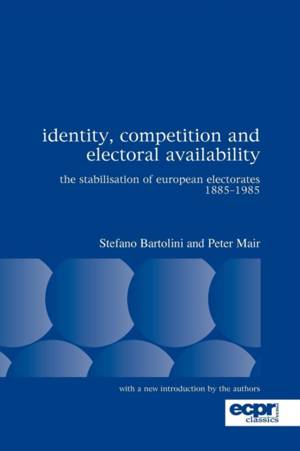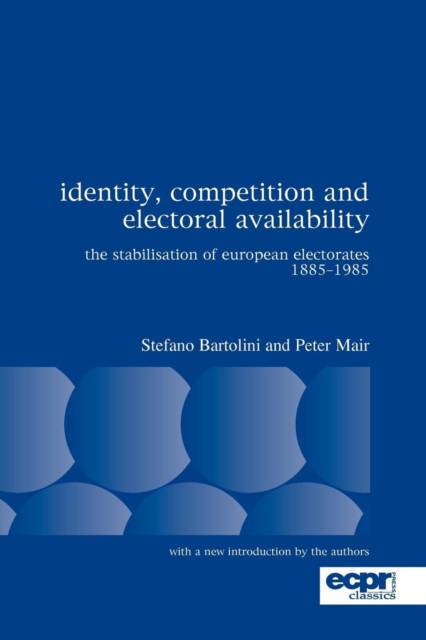
- Afhalen na 1 uur in een winkel met voorraad
- Gratis thuislevering in België vanaf € 30
- Ruim aanbod met 7 miljoen producten
- Afhalen na 1 uur in een winkel met voorraad
- Gratis thuislevering in België vanaf € 30
- Ruim aanbod met 7 miljoen producten
Zoeken
Identity, Competition and Electoral Availability
The Stabilisation of European Electorates 1885-1985
Stefano Bartolini, Peter Mair
€ 58,95
+ 117 punten
Omschrijving
The question of whether Western party systems were becoming more unstable and electorates more volatile had already become central to the study of modern European by the end of the 1970s. Much of the literature at the time stressed how Western Europe was experiencing a phase of party breakdown, dealignment and decay, and how traditional mass politics was in the process of transformation. In this first book-length analysis of the subject, Stefano Bartolini and Peter Mair convincingly demonstrated how this emphasis on change had been largely misconceived and misplaced. This was the first systematic and conceptually sophisticated work to bring together the study of electoral change and cleavage persistence, and has since become one of the landmark volumes in the study of electoral politics in Europe. The authors examine patterns of electoral persistence and change in Western Europe between 1885 and 1985. They assess both what these patterns indicate with regard to the persistence of traditional cleavages, particularly the class cleavage, and how these patterns vary according to political, institutional and social factors. They analyse the various patterns of competition which have characterised elections across the different European countries and in different historical periods, and how cleavages can persist and re-emerge even in the face of widespread social change. They develop a sophisticated model of aggregate electoral change, in which national electorates are conceived as being torn between the stability brought about by cultural identities and organisational structures and the stimuli for change that are provoked by party competition and institutional change. Identity, Competition and Electoral Availability was awarded the Stein Rokkan Prize for Comparative Social Science Research and is now reprinted for the first time in paperback.
Specificaties
Betrokkenen
- Auteur(s):
- Uitgeverij:
Inhoud
- Aantal bladzijden:
- 344
- Taal:
- Engels
- Reeks:
Eigenschappen
- Productcode (EAN):
- 9780955248832
- Verschijningsdatum:
- 1/01/2007
- Uitvoering:
- Paperback
- Formaat:
- Trade paperback (VS)
- Afmetingen:
- 160 mm x 236 mm
- Gewicht:
- 539 g

Alleen bij Standaard Boekhandel
+ 117 punten op je klantenkaart van Standaard Boekhandel
Beoordelingen
We publiceren alleen reviews die voldoen aan de voorwaarden voor reviews. Bekijk onze voorwaarden voor reviews.







